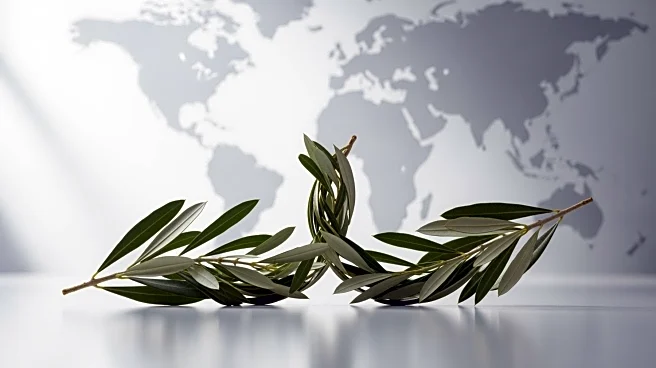What's Happening?
East Timor's President José Ramos-Horta has expressed his willingness to personally mediate in Myanmar's ongoing civil conflict. This statement comes shortly after East Timor's admission into the Association
of Southeast Asian Nations (ASEAN). Ramos-Horta, a Nobel Peace Prize laureate, highlighted his country's experience in conflict resolution and reconciliation as a potential asset in addressing Myanmar's crisis. The conflict in Myanmar, which began after the military coup in 2021, has resulted in widespread violence and displacement. Ramos-Horta criticized Myanmar's military for ignoring ASEAN's Five-Point Consensus, which calls for an immediate cessation of hostilities. He suggested that a ceasefire could be achieved through direct engagement with all parties involved, including the military.
Why It's Important?
Ramos-Horta's offer to mediate in Myanmar's conflict underscores the potential role of smaller nations in international diplomacy. His involvement could bring renewed attention and urgency to resolving the crisis, which has significant implications for regional stability. The conflict in Myanmar has disrupted ASEAN's efforts to maintain peace and cooperation among its members. A successful mediation could enhance ASEAN's credibility and effectiveness in conflict resolution. Additionally, East Timor's active participation in regional diplomacy may strengthen its international standing and influence, despite its economic challenges.
What's Next?
If ASEAN agrees to Ramos-Horta's approach, he may travel to Myanmar to engage with military leaders and other stakeholders. This could lead to a new political agreement aimed at stabilizing the country. However, the success of such efforts will depend on the willingness of Myanmar's military to engage in dialogue and compromise. The international community, including major powers like the United States and China, may also play a role in supporting or opposing these diplomatic efforts.
Beyond the Headlines
Ramos-Horta's initiative highlights the complex dynamics of international diplomacy, where smaller nations can leverage their unique experiences to influence larger geopolitical issues. His approach emphasizes the importance of direct engagement and pragmatic solutions over idealistic aspirations. This development also reflects the broader challenges facing ASEAN as it navigates internal conflicts and external pressures from global powers.









